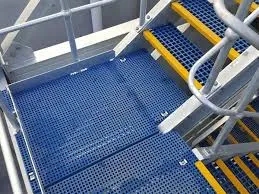
-
 Afrikaans
Afrikaans -
 Albanian
Albanian -
 Amharic
Amharic -
 Arabic
Arabic -
 Armenian
Armenian -
 Azerbaijani
Azerbaijani -
 Basque
Basque -
 Belarusian
Belarusian -
 Bengali
Bengali -
 Bosnian
Bosnian -
 Bulgarian
Bulgarian -
 Catalan
Catalan -
 Cebuano
Cebuano -
 China
China -
 China (Taiwan)
China (Taiwan) -
 Corsican
Corsican -
 Croatian
Croatian -
 Czech
Czech -
 Danish
Danish -
 Dutch
Dutch -
 English
English -
 Esperanto
Esperanto -
 Estonian
Estonian -
 Finnish
Finnish -
 French
French -
 Frisian
Frisian -
 Galician
Galician -
 Georgian
Georgian -
 German
German -
 Greek
Greek -
 Gujarati
Gujarati -
 Haitian Creole
Haitian Creole -
 hausa
hausa -
 hawaiian
hawaiian -
 Hebrew
Hebrew -
 Hindi
Hindi -
 Miao
Miao -
 Hungarian
Hungarian -
 Icelandic
Icelandic -
 igbo
igbo -
 Indonesian
Indonesian -
 irish
irish -
 Italian
Italian -
 Japanese
Japanese -
 Javanese
Javanese -
 Kannada
Kannada -
 kazakh
kazakh -
 Khmer
Khmer -
 Rwandese
Rwandese -
 Korean
Korean -
 Kurdish
Kurdish -
 Kyrgyz
Kyrgyz -
 Lao
Lao -
 Latin
Latin -
 Latvian
Latvian -
 Lithuanian
Lithuanian -
 Luxembourgish
Luxembourgish -
 Macedonian
Macedonian -
 Malgashi
Malgashi -
 Malay
Malay -
 Malayalam
Malayalam -
 Maltese
Maltese -
 Maori
Maori -
 Marathi
Marathi -
 Mongolian
Mongolian -
 Myanmar
Myanmar -
 Nepali
Nepali -
 Norwegian
Norwegian -
 Norwegian
Norwegian -
 Occitan
Occitan -
 Pashto
Pashto -
 Persian
Persian -
 Polish
Polish -
 Portuguese
Portuguese -
 Punjabi
Punjabi -
 Romanian
Romanian -
 Russian
Russian -
 Samoan
Samoan -
 Scottish Gaelic
Scottish Gaelic -
 Serbian
Serbian -
 Sesotho
Sesotho -
 Shona
Shona -
 Sindhi
Sindhi -
 Sinhala
Sinhala -
 Slovak
Slovak -
 Slovenian
Slovenian -
 Somali
Somali -
 Spanish
Spanish -
 Sundanese
Sundanese -
 Swahili
Swahili -
 Swedish
Swedish -
 Tagalog
Tagalog -
 Tajik
Tajik -
 Tamil
Tamil -
 Tatar
Tatar -
 Telugu
Telugu -
 Thai
Thai -
 Turkish
Turkish -
 Turkmen
Turkmen -
 Ukrainian
Ukrainian -
 Urdu
Urdu -
 Uighur
Uighur -
 Uzbek
Uzbek -
 Vietnamese
Vietnamese -
 Welsh
Welsh -
 Bantu
Bantu -
 Yiddish
Yiddish -
 Yoruba
Yoruba -
 Zulu
Zulu
frp pipes and fittings for ship building
FRP Pipes and Fittings for Shipbuilding
In the maritime industry, the materials used for ship construction play a crucial role in ensuring the durability, efficiency, and safety of vessels. Among these materials, Fiber Reinforced Polymer (FRP) pipes and fittings have emerged as a popular choice for shipbuilding due to their numerous advantages over traditional materials such as steel and PVC. This article explores the characteristics, benefits, and applications of FRP pipes and fittings in the shipbuilding sector.
Understanding FRP
Fiber Reinforced Polymer (FRP) is a composite material made from a polymer matrix reinforced with fibers, commonly glass, carbon, or aramid. The combination of these components results in a material that exhibits tremendous strength-to-weight ratios, corrosion resistance, and design flexibility. These attributes make FRP particularly suitable for marine applications, where exposure to seawater and harsh environmental conditions is a significant concern.
Advantages of FRP Pipes and Fittings
1. Corrosion Resistance One of the most significant advantages of FRP pipes is their inherent resistance to corrosion. Unlike metal pipes that can deteriorate when exposed to saltwater and other corrosive elements, FRP does not rust or corrode, significantly extending the lifespan of piping systems in ships.
2. Lightweight FRP pipes are considerably lighter than their metal counterparts. This reduction in weight contributes to the overall weight savings of the vessel, which can lead to enhanced fuel efficiency and improved speed. The lightweight nature of FRP allows for easier handling and installation during the construction process.
3. High Strength Despite being lightweight, FRP materials possess high tensile and flexural strength. This strength ensures that FRP pipes can withstand the stresses of marine environments, including fluctuating pressures and impacts, without compromising safety and functionality.
4. Thermal Insulation FRP has excellent thermal insulation properties, making it an ideal choice for maintaining temperature in various plumbing applications. This is particularly beneficial in ship systems where temperature control is essential, such as HVAC and refrigeration systems.
frp pipes and fittings for ship building

5. Design Flexibility The manufacturing process of FRP allows for customization in design and shape. This flexibility enables engineers to create complex piping layouts that optimize space within the ship. Additionally, fittings can be tailor-made to meet specific system requirements, therefore enhancing the overall efficiency of the piping network.
Applications in Shipbuilding
FRP pipes and fittings are employed in various applications within the shipbuilding sector
- Cooling Water Systems In marine vessels, cooling water systems are vital for ensuring the efficient operation of engines and other heat-generating equipment. FRP pipes are widely used due to their resistance to corrosion and ability to handle varying temperatures.
- Fuel and Oil Lines FRP is increasingly being used for transporting fuel and oil within ships. The material's resistance to chemical reactions makes it ideal for isolating these potentially hazardous substances, thereby promoting safety.
- Wastewater Management Most maritime vessels require efficient wastewater management systems to comply with environmental regulations. FRP piping systems are used in sewage treatment plants and gray water systems due to their capacity to withstand harsh chemicals and saline conditions.
- Ballast Systems Ballast systems are crucial for maintaining a ship's stability. FRP pipes can be employed to manage the intake and discharge of ballast water, ensuring that vessels remain balanced while navigating through varying water conditions.
Conclusion
The adoption of FRP pipes and fittings in shipbuilding marks a significant progression in marine engineering and construction. With their numerous advantages, including corrosion resistance, lightweight properties, and design flexibility, FRP materials offer an innovative solution to the challenges traditionally faced with metal pipes. As the maritime industry continues to prioritize sustainability and efficiency, the use of advanced materials like FRP is set to rise. Embracing such innovations not only improves vessel performance but also aligns with global efforts toward sustainable maritime practices. As we look towards the future, the role of FRP in shipbuilding will likely expand, leading to safer, more efficient, and environmentally friendly maritime operations.









